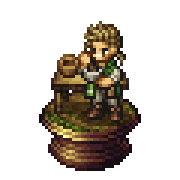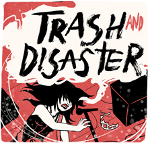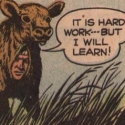|
My group haven't played Codenames in a good while either. Which, is fair. We might as well have played nothing but it for a good few months after it came out.
|
|
|
|

|
| # ? Jun 3, 2024 22:47 |
|
Anyone else playing the Tiny Epic games? I've been picking them up and they're super fun. Tiny Epic Galaxies came in today and I gave it a go with the solo rules. It's fun.
|
|
|
|
e: Heh I just noticed that the discussion is quoted from was ALSO caused by goons complaining about SUSD having wrong opinions. Hey, I was going to make some long joke about the Platonic Ideal of games, but turns out we made that joke last January. Magnetic North posted:There seems to be an attitude among some gamers have they have left the cave and seen the form of Game, and that they bear a terrible burden as they return to witness everyone playing with their shadow games. Anywhoo Broken Loose posted:There is objective criteria for what defines a bad game Care to offer an example to support that argument? Magnetic North fucked around with this message at 00:09 on Apr 17, 2016 |
|
|
|
Magnetic North posted:Care to offer an example to support that argument? Player elimination in anything more than ~15 min/round game.
|
|
|
|
Chill la Chill posted:Player elimination in anything more than ~15 min/round game. What about Werewolf/Mafia? (This is just for the sake of argument; I'm not personally sticking up for it.) I mean, you could also say the same for King of Tokyo/New York, but we could just adjust it to say games over 30 minutes or something.
|
|
|
|
I thought we had an understanding that Werewolf/Mafia is an incredibly awful game.
|
|
|
|
There's a used board game auction happening in my town next week and Witch's Brew is on the list of games. I feel like I remember this game being mentioned here a long time ago. Is it worth a minimum of $5 and worth bidding on?
|
|
|
|
Magnetic North posted:What about Werewolf/Mafia? (This is just for the sake of argument; I'm not personally sticking up for it.) I was going to start with 30 to make sure we weren't missing anything good but somehow felt that was too long.
|
|
|
|
If it's incredibly awful, what the hell do we call Munchkin? Seriously the hyperbole in this thread sometimes. Everything is always either the worst game ever to blight the earth ("an objectively bad game"), barely adequate (splendor) or the best game ever that everyone should play instead of anything else ("an objectively good game", such as Mage Knight, which is heartily recommended to everyone, including six player groups of 70 year grandmothers who to date have only played Carcasonne).
|
|
|
|
Scyther posted:I thought we had an understanding that Werewolf/Mafia is an incredibly awful game. I don't disagree, but have we established that objectively and/or shown that it's because of its inclusion of player elimination? (Hint: I don't think it's possible to showcase something like this objectively, but I'm interested in the discussion.)
|
|
|
|
There's also post- and pre-decision randomness, high randomness in long length games, gotcha or 'take that' mechanisms without any ability to counter/plan against people doing something against you, snowballing effects, lack of catch-up mechanisms (a lot of economic games, even ones that I like playing, are very guilty of those two), points salads, detachment of theme and mechanisms, excessive top-down/bottom-up design, excessive downtime, tendency towards causing AP in even non-AP players and probably a few more that I forgot
|
|
|
|
I do think that Mafia is pretty goddamn bad. The first day is the epitome and reason why the game is bad: depending on the setup, almost no one has really any information to work on, the voting can be relatively random and a person can be kicked out of the first round (and potentially have to wait for the entire game to conclude) before he can join the fun again: he can't even participate in the game because it would disadvantage one team or the other. Depending on player size, it is also possible that the game goes on for quite an extraordinary amount of time. As such, player elimination as present with Mafia is an objectively bad mechanism. We are examining the mechanism on a purely face to face scenario as well, because the game is different (and probably better) in a PbP format because if someone gets killed first day, they don't have to hang around and wait for their friends to finish. The resistance side-steps those issue and is a better game because of it's complete lack of player elimination (although it has issues of its own). Even when drunk I would prefer to play The Resistance over Mafia (and I've played both drunk), because sitting on the side and not being able to interact with your friends while drunk is not much fun.
|
|
|
|
^^^ Yeah, Mafia is much worse if you play it face to face. I have played it face to face in groups of about 20, though, and it works if the day time limits are kept strictly short. The most fun I ever had with IRL Mafia was the unofficial world record game in 2014 where we had I think it was 152 players. It was a turbo game divided into 15 villages that each had a lynch, an NK and an exile vote that sent a player to another village. The entire thing lasted an hour.EVGA Longoria posted:Anyone else playing the Tiny Epic games? I've been picking them up and they're super fun. Tiny Epic Galaxies came in today and I gave it a go with the solo rules. It's fun. Kingdoms was the first of the series, and while it's OK it feels incomplete. You really, really need the Heroes Call expansion to make it sing. The expansion increases the usefulness of the Tower track, adds a super-meeple to each side that you can promote into a role instead of performing the standard action during Growth or Research and which grant special abilities, and adds a wild resource that can't be used in war. Defenders is the odd man out. It's a brutally hard coop game, it doesn't scale well and a lot of configurations feel like they're not possible. I don't like it at all. Galaxies is a decent development of Kingdoms mixed with RtfG, but it will outstay its welcome if you play with five. I've only played Western once in PnP form, but at first blush it's quite nice. It feels a lot like Carson City at 00-scale with the combat for spaces, but the Hold'em style of the poker hands makes it very hard for a player to win at all the locations. Jedit fucked around with this message at 01:08 on Apr 17, 2016 |
|
|
|
Jedit posted:Kingdoms was the first of the series, and while it's OK it feels incomplete. You really, really need the Heroes Call expansion to make it sing. The expansion increases the usefulness of the Tower track, adds a super-meeple to each side that you can promote into a role instead of performing the standard action during Growth or Research and which grant special abilities, and adds a wild resource that can't be used in war. I kickstarted UTEK which brought them to my attention. Picked up TED because it was cheap, and had fun wit hit. Went ahead and pre-ordered Western (and got a copy of Galaxies, since it's been out of stock for a while) because it looks awesome. Just went ahead and bought TEK and Heroes Call since it's back in stock on CSI. They're just fun, simple, short, and fit in a small, super portable box. Exactly what I wanted from these games - something to play in a bit of downtime.
|
|
|
|
Broken Loose posted:there is objective criteria for what defines a good game. Ok, then what are those criteria?
|
|
|
|
I am pretty skeptical of the objective criteria line of thinking. Have fun fitting Codenames, your 18xx of choice, Twilight Struggle, Advanced Squad Leader, Chess, Coup, Caylus and Agricola into them. I'm personally happier to think about what kind to experience a group is looking for and how a given set of games matches up against that experience than rule games against a binary line of good or bad. Would rather spend more time talking about what makes a great game great than what makes a bad game bad. Edit: to further qualify, I think it's better to consider what might be the best game against a set of qualitative criteria than worry about a more quantitative set of eligibility criteria as to what qualifies as an "acceptable" game. Blamestorm fucked around with this message at 01:24 on Apr 17, 2016 |
|
|
|
Broken Loose posted:CE only gets ranked high because people can't seem to tell the difference between things they like and things that are good. Brass is an awesome game that I love.
|
|
|
|
Chill la Chill posted:Player elimination in anything more than ~15 min/round game. Cave Evil exists, so you're wrong.
|
|
|
|
It's just board game criticism in the end, and I don't think criticism is a bad thing. It is possible, in my opinion, to analyse games under a set of objective criteria and from there and then apply criticism using that set of criteria to give a rating to a particular game. It's what has been done with Film, Videogames (although lol @ the state of videogame reviews atm), literature, etc. The problem we have with board games is that the criteria that we use to judge them has not been set well yet, and criticism of the genre has not grown as a result. Look at the way that film/cinema criticism has developed. I think people get tied up with the dichotomy that a bad game is not something that you can have fun with, but that's not true: it is entirely possible to have a good experience with a bad game, in the same way that you can have a good experience with a bad film, and people should not belittle you or discourage you from being able to enjoy something that has objectively bad mechanisms within it. And honestly it is more fun for me to dissect why something is bad: I especially enjoy it when I'm analysing a game that I enjoy because it forces me to look past my own biases.
|
|
|
|
On that point, out of your examples, there are some that might be strong cases for being objectively bad.Tekopo posted:high randomness in long length games Blood Bowl? I guess it depends on if we consider a game about luck-mitigation to still have high randomness. Tekopo posted:excessive downtime I think this might be a contender for an objectively bad quality. 'Excessive' is subjective, and some downtime is a good thing, but unless we're being sacrastic, games are only good when you're somehow engaged in the action.
|
|
|
|
Tekopo posted:I think people get tied up with the dichotomy that a bad game is not something that you can have fun with, but that's not true: it is entirely possible to have a good experience with a bad game, in the same way that you can have a good experience with a bad film, and people should not belittle you or discourage you from being able to enjoy something that has objectively bad mechanisms within it. I don't think you can say a game is good/bad without qualifications. A game could be good for 10 year old, but bad for 30 year olds (checkers). It could be good for parties, but bad for wargamers (Dixit). A game could be good for casinos but bad for comic stores (blackjack). It's all context specific. For example, I can't say say Munchkin is objectively bad. It is bad in most circumstances (of course), but what if you are snowed into a mountain cabin with nothing else for entertainment? Munchkin might be the only thing preventing you and other survivors from turning to thoughts of cannibalism. Munchkin may be able to save lives, In that scenario Munchkin is a good game.
|
|
|
|
Monopoly is a good game because it stopped me from becoming a serial killer when I was 5.
|
|
|
|
Magnetic North posted:Blood Bowl? I guess it depends on if we consider a game about luck-mitigation to still have high randomness. quote:I think this might be a contender for an objectively bad quality. 'Excessive' is subjective, and some downtime is a good thing, but unless we're being sacrastic, games are only good when you're somehow engaged in the action. Rutibex posted:I don't think you can say a game is good/bad without qualifications. A game could be good for 10 year old, but bad for 30 year olds (checkers). It could be good for parties, but bad for wargamers (Dixit). A game could be good for casinos but bad for comic stores (blackjack). It's all context specific.
|
|
|
|
Some Numbers posted:There's a used board game auction happening in my town next week and Witch's Brew is on the list of games. Witch's Brew is the poo poo. Wizard's Brew is butt. Don't get the two confused.
|
|
|
|
Tekopo posted:You are mistaking enjoyment of a game with criticism of a game. We are trying to analyse games objectively, and you are saying 'but what about subjective criteria?'. Also made up scenarios where you control the situation because it is entirely fictional aren't a great way to argue a point. Im saying that subjective criteria are the only criteria that you have. To have the platonic ideal of a "good" game you must invent the platonic ideal of the "good" player, but there is no ideal player.
|
|
|
|
There is no such thing as an objective opinion, but good criticism has opinions with objectives. Like, if you're SU&SD, your opinion should light the way for a group of people with similar interests. The Ideal SU&SD viewer likes games with interesting interactive mechanics that don't involve much memorization of rules to work. Concordia and Food Chain Magnate both fulfill this role: they involve a lot of interweaving systems that work off of clear mechanics that allow players to feel empowered and like they're effecting others at the table. They want games where people aren't going to feel hurt by others and that provide a certain amount of ego-protection, because there is a slant in all of these games that they could potentially be played by those newer to games. They wouldn't give Dominant Species a high grade because it has too many ways to really hurt someone else in a way that might make them Feel Bad. (You can get hurt in FCM, but this is ok for them because usually in that game the first ~masterstroke~ move that gives one player a bunch of money is the one that wins the game at their relatively low level of play.) Through The Ages is a great game imho but to play it well involves a certain amount of remembering what cards might come out at certain times and keeping a large board-state in your head. And if you get pushed too far back it is almost impossible to make a comeback. This doesn't work for SU&SD because they want their games to feel "safe" and "intuitive." On the other end you have Heavy Cardboard, which caters to people who eat rulebooks for breakfast and love building complex systems and enjoy some brutality in their games. This is also where a few forum regulars like myself, Tekopo, and Lorini lie. Heavy Cardboard is very good at showing people like that games that fit their interests because they understand that they are pushing toward a specific type of gamer. The problem is that the people doing these reviews aren't perfect critics, and may find certain games bad or good based on more personal preferences. SU&SD pushes total-piece-of-trash game Cosmic Encounter out of nostalgia, even though it violates a lot of their core tenets about what makes games good. Their push of Mafia De Cuba looks like it's a mistake because the game is solvable, but the crowd to which SU&SD caters doesn't actually care about solvable games. Their audience never solves games. (In my opinion, Heavy Cardboard made a mistake pushing Maderia as a good game, as I found it tearfully dull, but I have only played it with two and suspect that it just won't sing until I play it with four.) Even amongst these different reviewers who enjoy certain types of games for different reasons there can be clearly bad games. No one likes Munchkin or Mafia or Monopoly who reviews games seriously because they aren't really good at catering to any specific game-literate audience's need. People play them not because they are good, but because they are common. This is also fine. Many people enjoyed Transformers 2 even though it was a bad, racist movie. The point of any good reviewer should be to point out to those who want to understand more about a specific type of art what their tastes are, and on a higher level to debate about what makes certain types of games good. Codenames and Twilight Struggle are both by consensus critically praised, but for very different reasons, at very different times, for very different contexts. I think this is why this thread gets so mad at SU&SD, because they were for a while the only half-decent game criticism out there and they cater toward an audience that is superficially similar to most thread regulars. But Tekopo doesn't care that games are rules-lite, BLoose values higher-level play, and Rutibex is continually frustrated by their inability to include dollar-per-wooden-piece scores in their reviews. But SU&SD isn't for any of those people. It is aimed more at people who have a pre-existing group of friends they want to introduce board games to. They value games that push a certain theatrical flair, allow easy social interaction, and don't push most people toward a certain quiet thinkiness in the first few plays. Impermanent fucked around with this message at 02:18 on Apr 17, 2016 |
|
|
|
Rutibex posted:Im saying that subjective criteria are the only criteria that you have. To have the platonic ideal of a "good" game you must invent the platonic ideal of the "good" player, but there is no ideal player. Additionally, you should be able to acknowledge a game as being good even if you hate it: BLoose did this with Brass, and even SUSD was able to do it as well, and I've done it for games in the past where I could see the brilliance but the game wasn't for me. If reviewing games was entirely based on subjective criteria, the above should not be possible. The problem is that I honestly feel that game criticism is still in a relative state of infancy and that we have not been able to develop effective tools to analyse games effectively, which ends up leaving a bunch of amateurs discussing largely subjective criteria.
|
|
|
|
Blamestorm posted:Have fun fitting Codenames, your 18xx of choice, Twilight Struggle, Advanced Squad Leader, Chess, Coup, Caylus and Agricola into them. Not only is it easy, Sid Meier defined it back in 2000: "A [good] game is a series of interesting choices." Mafia is a Bad Game because most choices in the game, particularly the early game, are not interesting (because without information there is little meaningful difference between choosing one player to lynch over another), and because a majority of players do not get to participate in a bulk of the possible choices (because they are eliminated from play). Now, we can debate for days about what makes an interesting choice, the same way film scholars have argued for years about what makes an interesting shot. For example, is it interesting to choose a response to the jailer in Arabian Nights? I would argue no, because from a computational perspective, most of the choices lead to the same node for your next choice (i.e. you remain in jail). Another gamer I respect disagrees, because each choice accesses a different snippet of fiction, and the fiction is a sufficient reward to be interesting. But I still hold that Meier's assertion is a crucial baseline metric. Any game that fails it cannot be a good game.
|
|
|
|
Speaking of nu-TTA, I forget- has it been implemented online yet?
|
|
|
|
Broken Loose do you have any games you would consider terrible that you love to play?
|
|
|
|
Tekopo posted:There's also post- and pre-decision randomness, high randomness in long length games, gotcha or 'take that' mechanisms without any ability to counter/plan against people doing something against you, snowballing effects, lack of catch-up mechanisms (a lot of economic games, even ones that I like playing, are very guilty of those two), points salads, detachment of theme and mechanisms, excessive top-down/bottom-up design, excessive downtime, tendency towards causing AP in even non-AP players and probably a few more that I forgot I agree with most of these (the ones related to theme are a bit less important and more separate a good from a great game). It's not too hard to pick out qualities that make a game bad (and this does apply to video games as well), but what makes a game great is a bit more subjective. Things like player agency reduction by things like chance or player elimination are not necessarily bad in limited quantities. Love Letter has player elimination and Pandemic has elements of chance, but those aren't necessarily detrimental to those games. It's when those qualities make it so that any decisions made by the players become meaningless or close to meaningless or is done in such a way that the player can't mitigate, reduce or otherwise nullify the effects is when it can become bad. An obvious example of this is Candy Land where winning is essentially based on how the deck is stacked and nothing else. No effective decisions made. Xia is also a commonly cited example of chance reducing agency wherein things like movement is wholly decided on luck and even winning the game can be done with rolling the die and no one else having a say in it. There's also 1775: Rebellion where turn order is random such that it's possible for a side to get a series of consecutive turns with the other side having no ability to do anything about it. Snowballing mechanisms also aren't necessarily bad as well. Giving a player an advantage for playing well should be an obvious outcome. However, it's when this reward begins to outpace the abilities of the other players to counteract it that such mechanisms become bad. Risk is an example of snowballing creating positions where players start to have less and less ability to do things as one player becomes stronger. Mage Knight is also an example of this in my experience. Lack of catch-up mechanisms is another way to frame this issue. One that's not listed in the quoted post is "trap options." That is, options that a player can take that are never good, but are presented as equally good to other, better choices. This is also tied into general balance of "characters" or "races." Smash Up is a clear example of this where certain factions are clearly and obviously worse than others and other factions are clearly and obviously better than others. Cosmic Encounters and the DC Deckbuilder game are also guilty of this. There's a difference between saying a game has bad or good qualities and liking or disliking a game. Those are two completely different things. What puts a stick up people's asses when it comes to this issue is that people tend to want to like things that are good and dislike things that are bad. All games have detrimental qualities. Some game have more or a significantly more impactful versions of those qualities. Understanding those things, however, can make the game more enjoyable for those playing and improve the experience for everyone. As an aside, bad games I like: Smash Up, Shadow Hunters.
|
|
|
|
Tekopo posted:Additionally, you should be able to acknowledge a game as being good even if you hate it: BLoose did this with Brass, and even SUSD was able to do it as well, and I've done it for games in the past where I could see the brilliance but the game wasn't for me. If reviewing games was entirely based on subjective criteria, the above should not be possible. The problem is that I honestly feel that game criticism is still in a relative state of infancy and that we have not been able to develop effective tools to analyse games effectively, which ends up leaving a bunch of amateurs discussing largely subjective criteria.  Even X-wing, a game and surrounding community I love. There's a bunch of glaring problems with balance, upgrades, and how the company choose to correct those problems. Not the least of which is the non-rotating format means that mistakes in game design currently stay until the heat death of the universe. And one whole faction still doesn't a concrete identity for itself. Still, people who play this game and devote lots of time to it will have trouble even admitting these glaring problems. It's really weird.
|
|
|
|
Gutter Owl posted:Not only is it easy, Sid Meier defined it back in 2000: "A [good] game is a series of interesting choices." I dig what you're saying but it feels a little weird asserting that a good game is objectively about interesting choices (without interesting choices a game cannot be good) yet acknowledge that what counts as "interesting" is in the eye of the beholder. Maybe this isn't really what you were trying to do but I think trying to separate out the human factor is a door to nowhere. A game only really exists wholly as a game with the 'played by humans' factor present and trying to critique a game minus that consideration I don't think can really go anywhere useful.
|
|
|
|
Gutter Owl posted:Not only is it easy, Sid Meier defined it back in 2000: "A [good] game is a series of interesting choices." Can a game fulfill that criterion and be a bad game? If so, what's the point of it in isolation? Look, to some degree I agree with all of this. I do disagree with Tekepo that objective evaluation criteria are important or necessary for criticism, citing things like film criticism as an example - if you look at most serious film criticism, which is obviously a very mature industry, the argument about what criticism should be is live and well and often centres on exactly what I stated, how well a film performs against an expectation, or what emotions it evokes or how well it immerses the viewer or what themes or messages the viewer takes away... All very qualitative and subjective criteria that are often distinct from how "well made" it is. Film critics will evaluate Lawrence of Arabia quite differently to say Animal House, and that's fine. Discussion is fine and great. But I also think talking about games as a designer is different as a player, just as film can be discussed clinically as a producer or director differently from an audience member. Critics are more concerned with the latter. I would like to write more on this but I'm always doing this on a blasted phone so my thumbs wear out - forgive me if its a bit incoherent as result. I think my overall point is that it's far easier to say something is a better experience for circumstance X then worry overmuch about whether a game is good or bad per se. I think this is why I didn't like the recent SUSD Brass review because that IS a game that is absolutely perfect for satisfying a need for a certain experience. They did refer to that obliquely (the 5% bit) but if you want a heavy, low randomness high strategy game drenched in historical theme and economics it's the poo poo. And that's what I want as information useful to me, not 'is it good or not'. It's good for group X who wants Y. I acknowledge there are many games I agree are bad like munchkin etc. But I would describe those as 'why play this? If you want X, I guarantee you Y will be better at delivering that experience', and let the circumstances drive the selection criteria. To take the film critic example I want to know if something is a good a action movie as much or more if it is a good 'movie'.
|
|
|
|
Mister Sinewave posted:I dig what you're saying but it feels a little weird asserting that a good game is objectively about interesting choices (without interesting choices a game cannot be good) yet acknowledge that what counts as "interesting" is in the eye of the beholder. What makes an interesting (the more appropriate word might be meaningful) choice is basically part of the game's goals. In the case of the Arabian Nights example, the choices fulfill the goals of furthering the narrative, but fails the goals of furthering competition. Can you put forward an example with a game with a lack of interesting or meaningful choices that's not bad?
|
|
|
|
I honestly don't know about that, and maybe there's a big hole in this but my main thing is that trying to factor out the human angle isn't useful because really only the system + players truly equals A Game. That ToTAN choice feels like a meaningful decision to me even if it does not end up helping me win, to you it does not unless it helps you win, and to Skynet looking for ways to pass the time after having killed all humans, it's about as interesting as a rock.
|
|
|
|
Mister Sinewave posted:I dig what you're saying but it feels a little weird asserting that a good game is objectively about interesting choices (without interesting choices a game cannot be good) yet acknowledge that what counts as "interesting" is in the eye of the beholder. Well, yes and no. Because while we cannot definitively assert the Platonic endpoint--what is The Most Interesting Choice--without involving subjective criteria, we can still determine that there exist interesting and uninteresting choices: That, in the bounded possibility space of all possible choices enabled by all possible defined game rulesets, that the subset of choices which human psychology, economics, and/or information theory can define as "interesting" is not equal to "all possible choices." And we can also reasonably assert that, within our now-bounded subset of "possibly interesting choices," not all choices are equally interesting. For instance, I do not believe anyone could argue in good faith that choosing-between-pepperoni-and-Italian-sausage-on-your-pizza is exactly as interesting as choosing-between-pepperoni-and-LSD-on-your-pizza. EDIT: Actually, under my own logic, I'd agree that we cannot neccessarily designate games solely by the binary endpoints--e.g. this game is Good or this game is Bad--but we CAN authoritatively say that a game is Better or Worse at being a game than other games. gutterdaughter fucked around with this message at 03:19 on Apr 17, 2016 |
|
|
|
StashAugustine posted:Speaking of nu-TTA, I forget- has it been implemented online yet? http://www.boardgaming-online.com/index.php?cnt=2 It's a good version
|
|
|
|
Gutter Owl posted:Well, yes and no. Because [...] I can get that. Just because interesting is subjective doesn't mean all decisions are on equal footing there.
|
|
|
|

|
| # ? Jun 3, 2024 22:47 |
|
Noted Interesting and Good Game Container may be getting a reprint next year which is swell because I don't want to drop $250. Neue Heimat next, please.
|
|
|

































